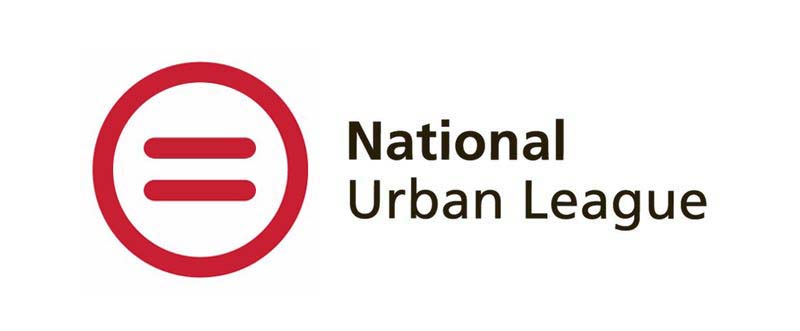Congratulations, you’ve graduated from college (or will soon)! So, what’s next? For most recent graduates, finding work is priority number one, but it’s a process that leaves many with job search anxiety.
Don’t worry — job search anxiety is completely normal, no matter your age. But college students have unique stressors when it comes to finding their first job. Add in competing for in-demand jobs in an uncertain economy, and it’s no wonder career anxiety is front and center for many new and soon-to-be graduates.
What Causes Job Search Anxiety?
A survey by TimelyMD found that 68% of recent graduates feel anxious or stressed about entering the workforce. Their biggest worries are being able to find and keep a job (65%), support themselves financially (52%), and be self-reliant and independent (49%) — all of which add significant stress to the job search process.
Another recent survey of soon-to-be graduates uncovered several concerns new grads have about entering the workforce:
- Return to office (RTO) mandates
- Lack of flexibility
- Toxic company culture
- Lack of salary negotiation power
- Potential layoffs
- Having a job they’re not passionate about
- Work-life balance
In addition to career anxiety about what a first out-of-college job will entail, “people are anxious about the unknown and not having a way to plan for the future,” says career coach Heather Starr. “This can be true for college students who are used to a more planned-out schedule or routine.”
Students may also be anxious and overwhelmed if they had “broader majors that could lead to a lot of different paths,” explains Starr. “Sometimes the possibilities can seem overwhelming!”

Cisco Career Readiness
Build your professional development skills by analyzing sales data and developing a project plan in this free job simulation.
Avg. Time: 2-3 hours
Skills you’ll build: Data analysis, data presentation, communication, project management, project planning
How to Deal With Job Search Anxiety
Wondering how to manage your job anxiety as you navigate the path to your first career? Check out these eight tips to help you embrace the calm while searching for a job.
1. Start Career Planning Early
So, when should you begin thinking about your post-college career? One of college students’ biggest job search missteps is not starting the career planning process early enough, says Imants Jaunarajs, assistant vice president, Division of Student Affairs at Ohio University.
“For most students, it takes hundreds of small action steps throughout their collegiate career to identify what they want to do and then find the opportunities that match their interests, skills, and values,” he explains. “Starting the career development process early and engaging often will help ensure students find success in sourcing their first opportunity.”
Once you begin the process, take advantage of all the career development resources available in school. “I’d recommend visiting the campus career center or internships office to work on identifying skills gained from courses, projects, research, jobs, internships, extracurricular activities, volunteering, etc.,” says Starr.
>>MORE: View our list of 80 online job search resources, including AI tools, job application trackers, resume builders, salary databases, job boards, and more.
2. Get Work Experience
Knowing you have the work experience to succeed in the workplace can make searching for jobs much less overwhelming. But how do you get work experience before your job search? “An internship is an excellent way to gain career-related experience and build your resume,” says Starr.
You can also gain work experience through volunteering, apprenticeships, and virtual job simulations. These enable you to hone relevant job skills and explore diverse opportunities that can help you define your career goals.

Two Sigma Professional Skills Development
Fine tune your project management skills while learning how to prioritize and communicate clearly and professionally.
Avg. Time: 3-4 hours
Skills you’ll build: Communication, relationship management, project planning, scheduling, project management
3. Come Prepared
Nothing alleviates anxiety like preparation, and this is especially true during the job search process. Begin by making sure your resume or curriculum vitae (CV) is up to date and ready to be customized for each job you apply to.
Then, do some interview preparation and practice to ensure you’re ready to answer any interview questions that may come up. Once you feel confident in your job search prep, you’ll feel your job search anxiety start to melt away.
>>MORE: Learn how to use resume keywords to customize your resume.
4. Establish Manageable Goals
“Break the job search process into small action steps,” explains Jaunarajs. “The long-term goal (the why) is getting a job, the short-term action steps (the how) are numerous and take time. Identify small action items that can be done each day, or every week, and systematically work through the process — do not try to do everything right before graduation or in a short timeframe, it won’t work for most students.”
>>MORE: What Are SMART Goals? Template and Examples
And, try not to make searching for a job all-encompassing. “Identifying a reasonable number of jobs to apply to each week” can help job seekers avoid overwhelm and keep things manageable, says Starr.
5. Look for a Good Fit
Knowing what you’re looking for (and why) can ease your anxiety about finding the right fit.
A common job search mistake “is not thinking through if the opportunity matches a student’s values,” says Jaunarajs. “Many students leave their first job within 18 months because the values of the organization/company, or their supervisor, do not match their personal values.”
To help avoid a mismatch and ease your job search anxiety, he advises students to “think through what priority values have to be in the work environment and ask about those throughout the interview process.”
6. Find Support
Whether you’re planning for post-graduation or have been job searching to no avail, don’t be afraid to reach out for support.
“A career counselor or coach should be able to help you brainstorm possibilities that may have been overlooked, and they can help execute a job search, including assistance with resume writing and interviewing,” advises Starr.
Listening to podcasts of people sharing their job search failures and lessons learned can also help you feel less anxious and alone, says Starr. “It’s helpful to normalize the anxiety and understand that most of us don’t have perfectly linear careers.”

Forage Resume Writing Masterclass
Learn how to craft a resume that gets results with section-by-section descriptions in this free masterclass from Forage.
Avg. Time: 5-6 hours
Skills you’ll build: Resume writing, professional brand, professional summary, transferable skills, identifying job titles
7. Don’t Compare Yourself
When looking for jobs alongside your friends and fellow graduates, it’s easy to get caught up in the comparison game.
“As helpful as it can be, sometimes I wonder if social media also plays into our anxiety about the job search, especially as people announce their new roles, promotions, or layoffs,” notes Starr. Social media can also trigger “our fears about ‘falling behind’ or not being ‘good’ enough.”
As such, she explains how it’s helpful to “limit the amount of time spent on social media, as it can serve as a distraction or may add to the feeling of discouragement if you’re not where you feel you should be.”
Instead of comparing yourself to your former classmate who just posted about their “dream” career, trust your accomplishments and believe in your own unique path forward. After all, what you see on social media isn’t usually as rosy as it appears.
8. Have a Problem-Solving Mindset
Everyone has anxiety at some point during a job search — it’s how you respond to it that matters.
In a study of senior college students searching for a job or internship, researchers from the University of Arizona found that students who responded to job search anxiety with “problem-solving pondering,” or focusing on how to improve their job search, were more likely to be productive and continue job searching. This positive focus led to more interviews and job offers.
Students who engaged in negative “affect-focused rumination,” on the other hand, continued to struggle, were less likely to continue their job search, and had fewer opportunities. When you feel anxiety rearing its ugly head, shift into problem-solving mode to figure out how to make your job search better.
Search Your Way to Success
Job search anxiety is a part of life, but learning how to manage it will help you stay focused on your journey toward your dream career.
“Making life altering decisions is always stressful and exciting at the same time,” says Jaunarajs. “To help reduce anxiety about the job search, finding support and using career development services and resources will be helpful. The more students understand about the job search process, the better. Be informed and start searching for opportunities early.”

Ashurst You Are Extraordinary
Learn how to manage and overcome self doubt and imposter feelings as you embark on your job search.
Avg. Time: 3-4 hours
Skills you’ll build: Self-awareness, positive self-talk, interview prep, self expression, growth mindset
Image credit: AntonioGuillemF / Depositphotos.com


